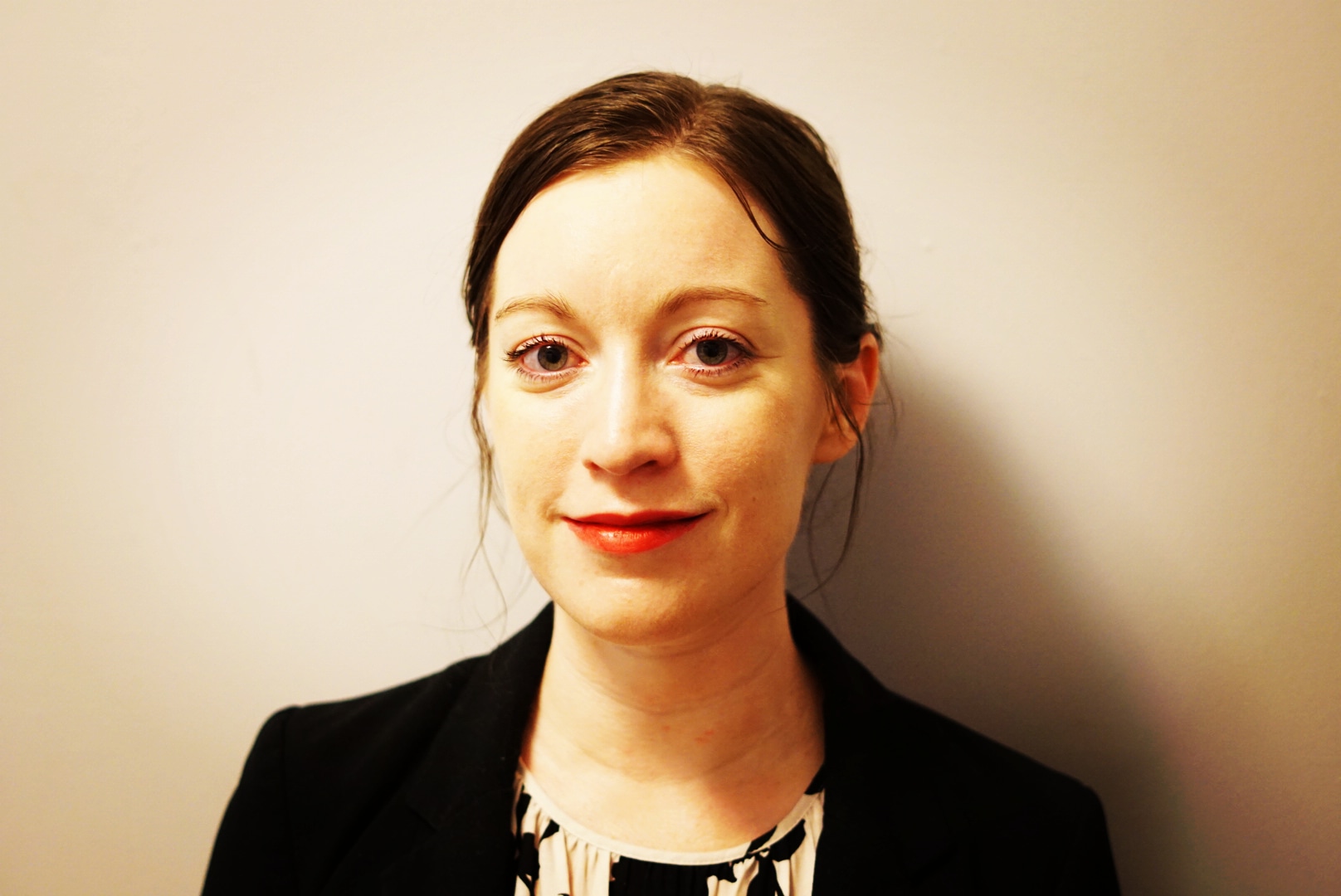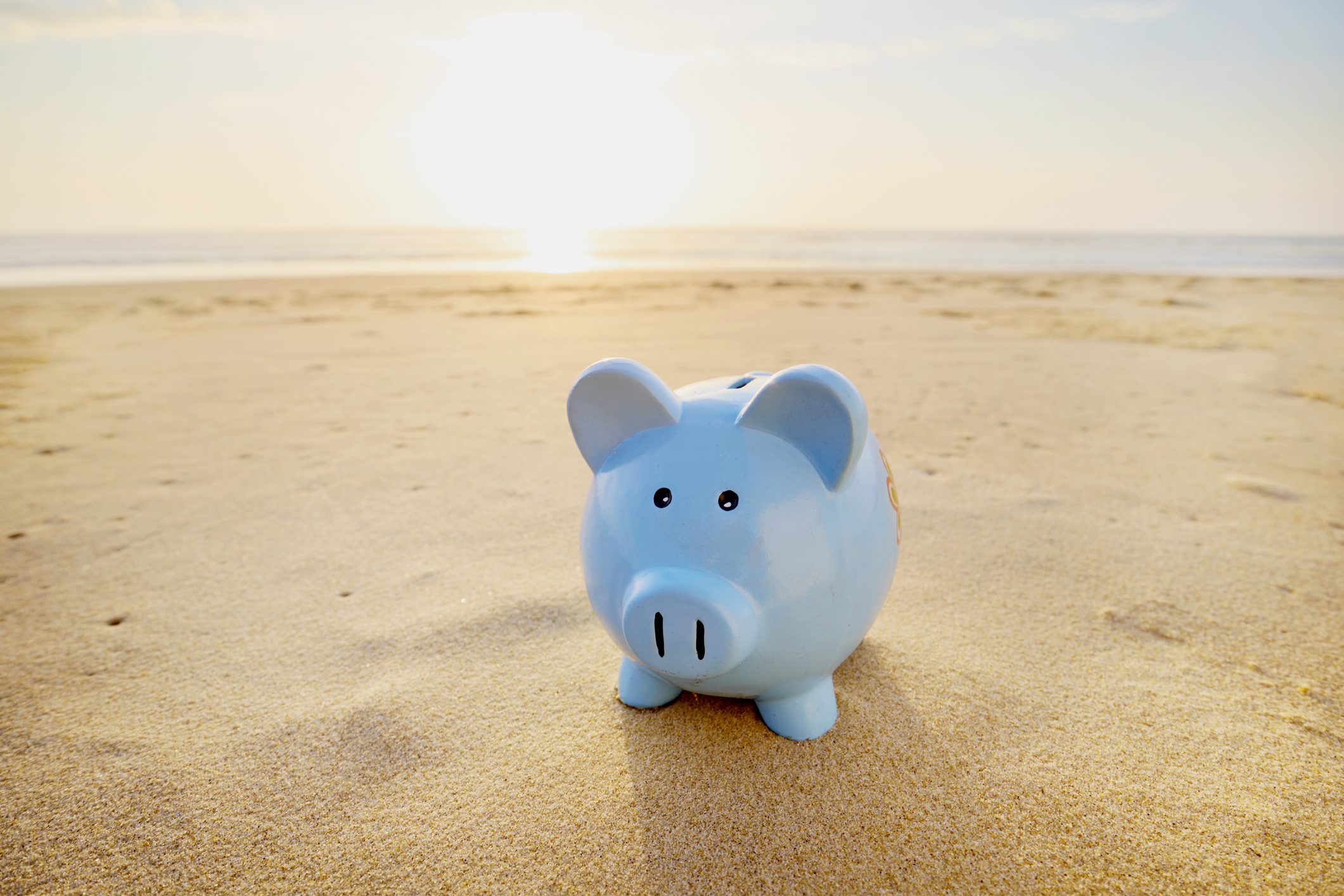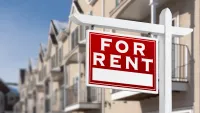Why More Seniors Are Renting – And Is It Really a Better Alternative to Downsizing?
The 55+ crowd is the fastest-growing group of renters. Here’s what to weigh if you’re considering swapping homeownership for a lease.

Profit and prosper with the best of Kiplinger's advice on investing, taxes, retirement, personal finance and much more. Delivered daily. Enter your email in the box and click Sign Me Up.
You are now subscribed
Your newsletter sign-up was successful
Want to add more newsletters?

Delivered daily
Kiplinger Today
Profit and prosper with the best of Kiplinger's advice on investing, taxes, retirement, personal finance and much more delivered daily. Smart money moves start here.

Sent five days a week
Kiplinger A Step Ahead
Get practical help to make better financial decisions in your everyday life, from spending to savings on top deals.

Delivered daily
Kiplinger Closing Bell
Get today's biggest financial and investing headlines delivered to your inbox every day the U.S. stock market is open.

Sent twice a week
Kiplinger Adviser Intel
Financial pros across the country share best practices and fresh tactics to preserve and grow your wealth.

Delivered weekly
Kiplinger Tax Tips
Trim your federal and state tax bills with practical tax-planning and tax-cutting strategies.

Sent twice a week
Kiplinger Retirement Tips
Your twice-a-week guide to planning and enjoying a financially secure and richly rewarding retirement

Sent bimonthly.
Kiplinger Adviser Angle
Insights for advisers, wealth managers and other financial professionals.

Sent twice a week
Kiplinger Investing Weekly
Your twice-a-week roundup of promising stocks, funds, companies and industries you should consider, ones you should avoid, and why.

Sent weekly for six weeks
Kiplinger Invest for Retirement
Your step-by-step six-part series on how to invest for retirement, from devising a successful strategy to exactly which investments to choose.
More and more Americans over 55 are choosing to rent rather than own their homes. Over the last decade, renters in this age group have risen faster than any other, with the number of renters aged 65 and older surging 30% in the same period, according to a recent Point2Homes study.
What's behind the move from owning to renting as people get older? A lot of different factors are at play from rising costs to the desire to cut down on time spent maintaining a property. Despite the common assumption that ownership is always the best choice, there are situations where renting makes the most financial sense.
As a renter, you may not be building equity. But you're freeing yourself from the financial responsibility of paying property taxes, rising home insurance premiums and repair costs to maintain your property. It's also a lot more flexible than ownership, giving you the opportunity to move or travel more freely in your retirement. With that in mind, let's break down the costs and benefits of owning and renting in retirement to help you decide which one is the right move for your future.
From just $107.88 $24.99 for Kiplinger Personal Finance
Become a smarter, better informed investor. Subscribe from just $107.88 $24.99, plus get up to 4 Special Issues

Sign up for Kiplinger’s Free Newsletters
Profit and prosper with the best of expert advice on investing, taxes, retirement, personal finance and more - straight to your e-mail.
Profit and prosper with the best of expert advice - straight to your e-mail.
Is it cheaper to rent or own in retirement?

As a homeowner looking ahead to retirement, the equity you're building right now could either go toward buying something smaller and easier to maintain or you could roll it into your retirement savings and earn interest on it while you draw on your funds to pay rent.
To give you an idea of what your monthly budget might look like in each scenario, let's compare the average cost of home ownership with the average cost of renting in the United States.
According to the latest data from the Council for Community and Economic Research, the median rent in the United States is $1,422 per month. Meanwhile, here are some of the typical costs homeowners are looking at:
Homeownership Cost | Amount |
|---|---|
Median mortgage (principal + interest) | $2,124 / month |
Median home price | $447,976 |
Average annual home maintenance | $8,800 |
Average property tax | $1,889 / year |
Average home insurance premium* | $2,397 / year |
*Based on $300,000 in dwelling coverage. Premiums will be higher for homes at the median price.
Taken together, owning could cost you as much as $3,214 per month to cover the mortgage, taxes, insurance, and maintenance of a home.
That's more than double the median rent. But there are a lot of caveats to that number that could make your actual budget lower:
Factors that can change the math
National averages give you a starting point, but your actual costs will depend on your situation. Here are some ways ownership may end up costing less than the averages, and some ways it could cost more.
Ways ownership may cost less than average:
- Your mortgage will eventually be paid off, leaving you with roughly $1,090 per month in taxes, insurance and maintenance costs. Though, with inflation and rising home values, that $1,090 is likely to be a little higher by the time your mortgage is done.
- If you're selling your current home, you will likely have a generous cash reserve from the sale to put toward your new home. With a higher down payment (or even the ability to pay for your new home in cash up front), you can lock in a substantially lower monthly payment or pay off the mortgage much sooner.
- If you're downsizing, you may end up finding your perfect home for much less than the median home price above, depending on the location. That will likely also mean a lower-than-average tax bill and insurance premium. It could even result in lower maintenance costs because there's less home to maintain.
At the same time, there are a few caveats that could end up making home ownership even more expensive for you than the national average.
Ways ownership may cost more than average:
- The costs above don't factor in HOA fees or major renovations you might want to make to your home.
- Costs like taxes, insurance and even home repairs vary widely by location. If you're moving to a higher cost of living area, those costs could exceed the median rent in the area even if you don't have a mortgage.
- In many cases, rent includes certain utilities — like water and trash — so you may also want to factor in those decreased utility costs when comparing renting and ownership in your target city.
The benefits of renting
Overall, national averages like the ones above are too generalized to really say how the math looks for the place you want to live. But, it does show that it's at least worth doing that math to find out whether renting or owning makes the most financial sense for your dream retirement.
If budget is your biggest factor, you could opt to own in one of the cheaper places to retire that also has below average insurance rates and milder weather to keep your tax, insurance and maintenance costs down.
But if you want to enjoy the amenities and culture of a bigger (more expensive) city, you can see how renting can be a more affordable way to gain access. Other perks of renting rather than owning include:
- Flexibility. Want to live overseas for a few years? Want to spend a year or two on the road in an RV? Want to live next to your grandkids until they go off to college and then move to the beach? With renting, it's a lot easier financially and logistically to hop around a bit.
- Less responsibility. In addition to not having to pay for maintenance and repairs, renters also don't have to devote the time and energy involved in getting quotes and coordinating repairs.
- Amenities. While certain HOAs will offer amenities like tennis courts, gyms and clubhouses, you'll definitely see higher HOA fees to cover them. Renting in a complex that has those same amenities will also likely cost more than renting somewhere without, but it may still be cheaper than owning.
- Renters' insurance is cheaper than home insurance. Renters' insurance is a must if you're renting. But the policy covers only your belongings and liability – the structure of the rental itself is insured by your landlord's policy. That makes the premiums a lot cheaper than home insurance.
Get customized quotes on renters' insurance from multiple insurers. Compare that with how much you're currently paying for home insurance to see how much you'd be saving on premiums by renting instead of owning, powered by Bankrate. Advertising disclosure.
The downsides to renting
Before you list your home on Zillow, though, there are some important downsides to renting to consider:
- A bad landlord can easily outweigh any benefits of renting. Living in an apartment with recurring leaks, nonfunctional heating and cooling or uncontrolled pest problems can be just as stressful as having to pay to fix those same issues in a home you own. Ask the leasing agent how they handle repairs and work orders to get a feel for their response time.
- Less control over price hikes. A mortgage eventually gets paid off, but rent typically only ever goes up. Some areas have rent control laws in place, but, for the most part, your only option if the landlord jacks up the rent is to move. If you signed the lease hoping to spend your golden years in one place, needing to move every few years to escape rent hikes can be stressful. Note that moving costs from moving every few years will also eat into any potential savings from opting not to own.
- Less flexibility when it comes to remodeling. If you're the type to turn your home into your custom oasis, renting might not be right for you. You'll need to find a rental that's already more or less something you like as is because you won't be able to do any serious remodeling.
Should you downsize or rent?

If you're not sure what your next move should be, here are a few questions to ask yourself to help you decide:
- Do you want the flexibility to move frequently? If so, renting might be a better option, at least until you're ready to settle down in one place. If you're likely sticking to one place, owning might make more financial sense in the long run.
- Where do you want to move? If it's an expensive market to buy into, renting might be a more viable option. In lower cost of living areas, owning might make more sense.
- What amenities do you want? If you're considering renting to get into a complex or community that offers amenities like an on-site gym or recreation areas, compare the costs of that unit with the cost of buying a similarly-sized apartment or condo in an HOA or condo association with similar amenities.
- If you were to downsize (and own), would you be able to pay cash or would you be taking out a mortgage? If taking out a mortgage, you'll want to compare the total amount you'll pay during the years you live there with the total you'd likely spend on renting. If paying in cash is an option, ownership can quickly become more cost-effective than renting, even in an HOA, depending on the average taxes and insurance in your area.
If you're still on the fence about whether to rent or own as you approach retirement, you can try out both. If you're moving to a new town or state, for example, it's not a bad idea to rent for a year or so while you learn the lay of the land. That gives you time to explore your new hometown and figure out which areas you want to look into when you're ready to buy.
You can also spend the first few years of retirement in rentals if you want to travel extensively and keep your fixed costs down while you do so. Then, look at buying once you're ready to settle in and stay in one place for a while.
Explore and compare some of today's best mortgage offers with the tool below, powered by Bankrate:
Related Content
Profit and prosper with the best of Kiplinger's advice on investing, taxes, retirement, personal finance and much more. Delivered daily. Enter your email in the box and click Sign Me Up.

Rachael Green is a personal finance eCommerce writer specializing in insurance, travel, and credit cards. Before joining Kiplinger in 2025, she wrote blogs and whitepapers for financial advisors and reported on everything from the latest business news and investing trends to the best shopping deals. Her bylines have appeared in Benzinga, CBS News, Travel + Leisure, Bustle, and numerous other publications. A former digital nomad, Rachael lived in Lund, Vienna, and New York before settling down in Atlanta. She’s eager to share her tips for finding the best travel deals and navigating the logistics of managing money while living abroad. When she’s not researching the latest insurance trends or sharing the best credit card reward hacks, Rachael can be found traveling or working in her garden.
-
 Quiz: Do You Know How to Avoid the "Medigap Trap?"
Quiz: Do You Know How to Avoid the "Medigap Trap?"Quiz Test your basic knowledge of the "Medigap Trap" in our quick quiz.
-
 5 Top Tax-Efficient Mutual Funds for Smarter Investing
5 Top Tax-Efficient Mutual Funds for Smarter InvestingMutual funds are many things, but "tax-friendly" usually isn't one of them. These are the exceptions.
-
 AI Sparks Existential Crisis for Software Stocks
AI Sparks Existential Crisis for Software StocksThe Kiplinger Letter Fears that SaaS subscription software could be rendered obsolete by artificial intelligence make investors jittery.
-
 We Retired at 62 With $6.1 Million. My Wife Wants to Make Large Donations, but I Want to Travel and Buy a Lake House.
We Retired at 62 With $6.1 Million. My Wife Wants to Make Large Donations, but I Want to Travel and Buy a Lake House.We are 62 and finally retired after decades of hard work. I see the lakehouse as an investment in our happiness.
-
 I'm an Opportunity Zone Pro: This Is How to Deliver Roth-Like Tax-Free Growth (Without Contribution Limits)
I'm an Opportunity Zone Pro: This Is How to Deliver Roth-Like Tax-Free Growth (Without Contribution Limits)Investors who combine Roth IRAs, the gold standard of tax-free savings, with qualified opportunity funds could enjoy decades of tax-free growth.
-
 I'm a Real Estate Investing Pro: This Is How to Use 1031 Exchanges to Scale Up Your Real Estate Empire
I'm a Real Estate Investing Pro: This Is How to Use 1031 Exchanges to Scale Up Your Real Estate EmpireSmall rental properties can be excellent investments, but you can use 1031 exchanges to transition to commercial real estate for bigger wealth-building.
-
 My Spouse and I Are Saving Money for a Down Payment on a House. Which Savings Account is the Best Way to Reach Our Goal?
My Spouse and I Are Saving Money for a Down Payment on a House. Which Savings Account is the Best Way to Reach Our Goal?Learn how timing matters when it comes to choosing the right account.
-
 The High Cost of Sunshine: How Insurance and Housing Are Reshaping Snowbird Living
The High Cost of Sunshine: How Insurance and Housing Are Reshaping Snowbird LivingThe snowbird lifestyle is changing as insurance and housing costs climb. Here’s how retirees are adapting and where they’re choosing to go.
-
 How to Turn Your 401(k) Into A Real Estate Empire — Without Killing Your Retirement
How to Turn Your 401(k) Into A Real Estate Empire — Without Killing Your RetirementTapping your 401(k) to purchase investment properties is risky, but it could deliver valuable rental income in your golden years.
-
 We're 62 With $1.4 Million. I Want to Sell Our Beach House to Retire Now, But My Wife Wants to Keep It and Work Until 70.
We're 62 With $1.4 Million. I Want to Sell Our Beach House to Retire Now, But My Wife Wants to Keep It and Work Until 70.I want to sell the $610K vacation home and retire now, but my wife envisions a beach retirement in 8 years. We asked financial advisers to weigh in.
-
 We Inherited $250K: I Want a Second Home, but My Wife Wants to Save for Our Kids' College.
We Inherited $250K: I Want a Second Home, but My Wife Wants to Save for Our Kids' College.He wants a vacation home, but she wants a 529 plan for the kids. Who's right? The experts weigh in.
